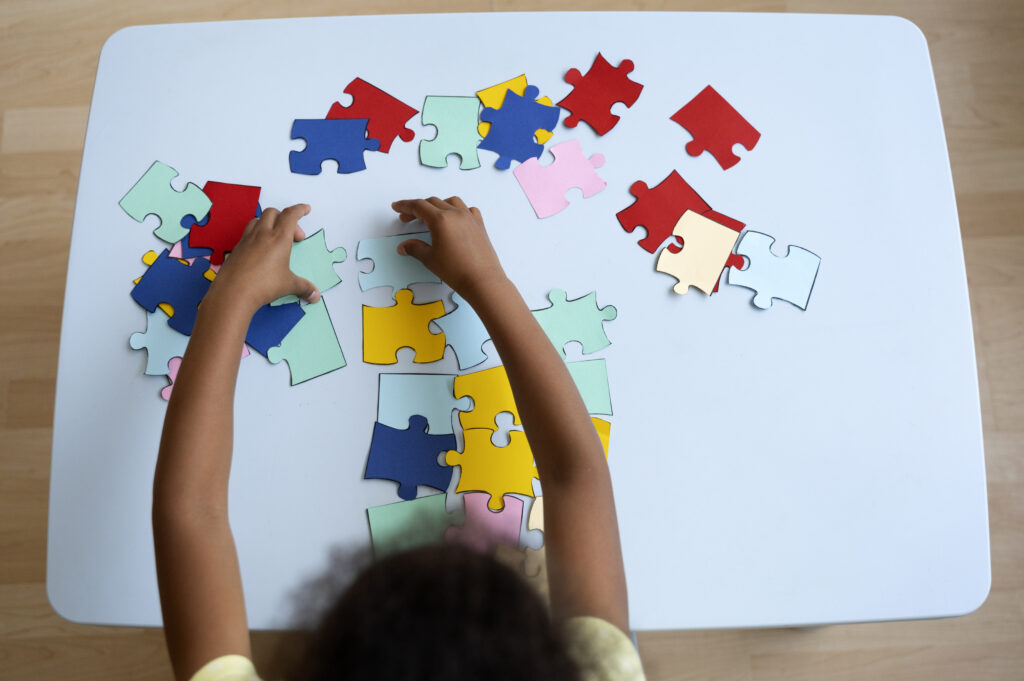Navigating the world of autism spectrum disorder (ASD) can feel overwhelming. As a parent, you naturally want to understand and support your child. You might have questions about the different ways autism can present and what that means for your child. Let’s break down this complex spectrum and explore its characteristics, signs, causes, and diagnosis.
What is an autism spectrum disorder (ASD)?
Autism Spectrum Disorder (ASD) is a neurodevelopmental condition that affects how a person interacts with others, communicates, and experiences the world. It’s called a “spectrum” because it encompasses a wide range of skills, symptoms, and levels of support needs. It’s important to understand that ASD is a single diagnosis with varying presentations, not a collection of separate “types.”
How Autism Presents: Understanding the Spectrum
Previously, terms like “Autistic Disorder,” “Asperger’s Syndrome,” and “Pervasive Developmental Disorder Not Otherwise Specified (PDD-NOS)” were used as separate diagnoses. However, the current understanding, reflected in the Diagnostic and Statistical Manual of Mental Disorders (DSM-5), recognizes that these are all part of the same spectrum. The DSM-5 no longer uses these as separate diagnoses. All these conditions are now encompassed under the single umbrella diagnosis of autism spectrum disorder (ASD). The DSM-5 recognizes that ASD presents a wide range of symptom severity and support needs.
It’s essential to understand that while individuals on the autism spectrum share some common characteristics, the way these characteristics manifest varies significantly. Some individuals may have significant challenges with language and communication, while others may have relatively strong language skills but struggle with social interaction. Some may have very specific interests, while others might have a broader range of interests. The spectrum is vast and diverse.
Signs and Symptoms of Autism
Identifying ASD often begins with noticing certain signs in your child:
- Social Interaction Differences: May avoid eye contact altogether, or may make brief, fleeting eye contact but not sustain it. Might struggle to understand social cues like facial expressions or body language, leading to misinterpretations in social situations.
- Communication Challenges: May have difficulty interpreting or using nonverbal communication, such as facial expressions, body language, or tone of voice. Might have difficulty understanding the nuances of language, like sarcasm or humor.
- Repetitive Behaviors or Interests: May engage in repetitive motor behaviors like hand-flapping, rocking, spinning, or lining up toys. Might have inflexible adherence to routines, becoming distressed by even minor changes in schedule.
- Sensory Sensitivities: May be overly sensitive to certain sensory input, such as loud noises, bright lights, or specific textures, leading to sensory overload. Conversely, they may be under-responsive to sensory input, seeking out intense sensory experiences or appearing unaware of their surroundings.
It’s important to remember that every child is unique, and these signs don’t necessarily confirm ASD. A professional evaluation is essential for diagnosis.
Example: Let’s think about Lily, a bright 5-year-old girl who loves to spin in circles. Her parents first noticed their daughter’s love for spinning when she was three, and while it brings her immense joy, it sometimes leads to distress. If interrupted during her spinning, Lily becomes visibly upset, throwing tantrums that can last for several minutes. At preschool, she’s hesitant to join group activities unless they involve circular movements, such as playing with hula hoops. This example illustrates how a specific interest, in this case spinning, might be a characteristic of ASD, especially when coupled with other challenges.
Causes of Autism
The causes of autism are not fully understood, but research suggests a combination of genetic and environmental factors:
- Genetics: Family history is a risk factor, and various genes are believed to play a role in the development of ASD.
- Environmental Influences: Certain prenatal exposures or complications during birth may increase susceptibility.
While research continues, it’s important to highlight that no single cause has been identified for ASD.
Diagnosis and Evaluation
Diagnosing ASD involves a multi-step process:
- Developmental Monitoring: Regular check-ups with your pediatrician to track milestones.
- Developmental Screening: Short tests to see if your child is learning basic skills when they should.
- Comprehensive Diagnostic Evaluation: A detailed assessment by specialists, which may include hearing and vision tests, genetic testing, and other evaluations.
Early diagnosis and intervention can significantly impact a child’s development.
Frequently Asked Questions (FAQs)
- Can autism be cured? There is no cure for autism, but therapies and interventions can greatly improve skills and abilities.
- Is autism more common in some groups? Boys are diagnosed more often than girls.
- Will my child outgrow autism? Autism is a lifelong condition. However, with support, individuals with ASD can learn to manage challenges and thrive.
- How can I help my child with ASD? Seek early intervention programs, engage in therapy, and connect with support groups.
Understanding ASD and its diverse presentations is the first step in supporting your child. Celebrate their unique strengths and milestones, and remember that with support and understanding, your child can thrive. Consult with professionals and connect with support networks for guidance and resources.



